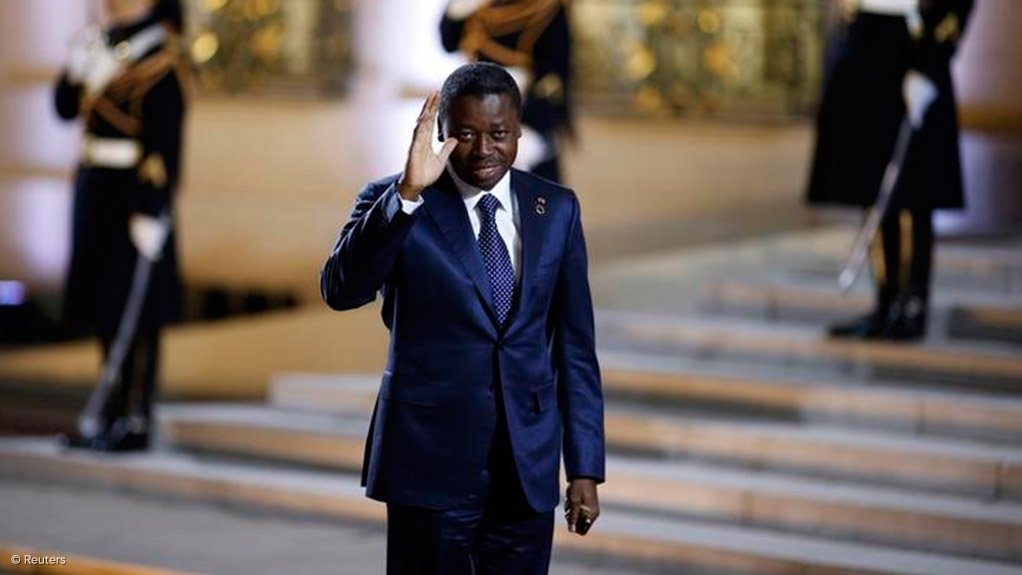Togolese President Faure Gnassingbé, whose family has run the West African nation for 58 years, faces mounting protests fanned by a manoeuvrer that has set him up to rule for life.
Hundreds of demonstrators marched in the capital, Lome, on Thursday to demand his exit and will do so again on Friday and Saturday, said David Dosseh, a spokesperson for Front Citoyen Togo Debout, an umbrella civil society group. The protests followed demonstrations on June 5 and 6.
“The Togolese people are eager for a change,” Dosseh said. The government “has become illegitimate, totally authoritarian, with restrictions on civic and political space, and a disastrous economic situation.”
Togo’s economy has grown an average 5% since 2011, better than the sub-Saharan Africa average of 3.1%, according to the International Monetary Fund. However, poverty is high with 35% of the population living on less than $3 a day in 2021, according to the World Bank.
Gnassingbé, 59, has ruled since the 2005 death of his father Gnassingbé Eyadema, who seized power in a 1967 coup.
The protests, the most significant since people took to the street in 2017 demanding change, were sparked by his appointment last month as president of Togo’s powerful council of ministers.
That was made possible through a controversial constitutional change that makes the president of the republic a largely ceremonial post, and transferred real power to the council of ministers’ leader.
The position, appointed by a majority-decision in the National Assembly can be renewed every six years, without any term limits.
Gnassingbé’s Union for the Republic party holds 108 out of 113 seats in the assembly following a landslide win in 2024 parliamentary elections.
Gnassingbé “has decided to transform Togo into a monarchy,” said Paul Dodji Apevon, chairperson of opposition Forces Democratiques pour la Republique. “He has treated the country’s resources as his own personal property.”
The government’s decision to raise electricity tariffs last month angered a lot of the country’s youth, said Spero Kodjo Mahoule, president of Lome-based Action Group for Governance and Democracy.
But he was sceptical the demonstrators will have any impact in the face of potentially violent suppression by the armed forces.
“It is not obvious that the unarmed Togolese people who would be the first to die would remain and say that they will continue to protest,” he said.
Amnesty International, in a June 17 report, urged the authorities to end the crackdown on dissent and investigate allegations of torture following the protests earlier in the month.
Togo’s top prosecutor Talaka Mawama said that 73 people were arrested during the June 5-6 demonstrations, though most were later released.
Security forces confronted this week’s demonstrations because they were coordinated through social media, said Minister of Communication Yawa Kouigan.
“Under the current laws in force in Togo, social media is not one of the legal channels for initiating a call to protest,” she said.
EMAIL THIS ARTICLE SAVE THIS ARTICLE
To subscribe email subscriptions@creamermedia.co.za or click here
To advertise email advertising@creamermedia.co.za or click here











